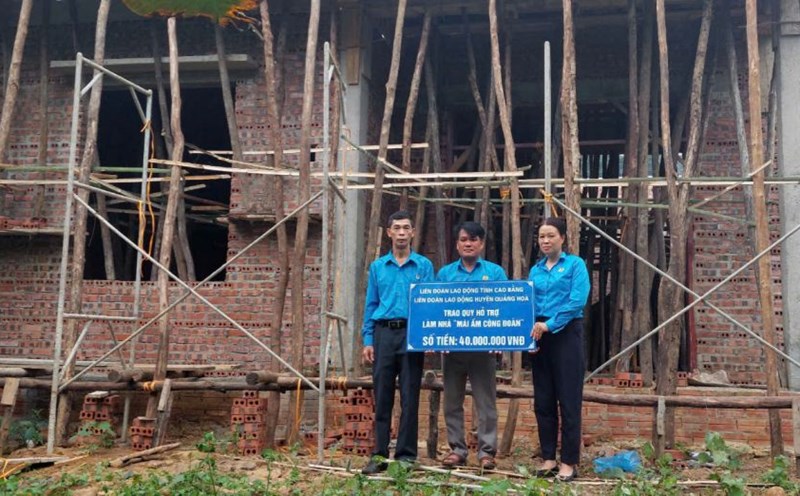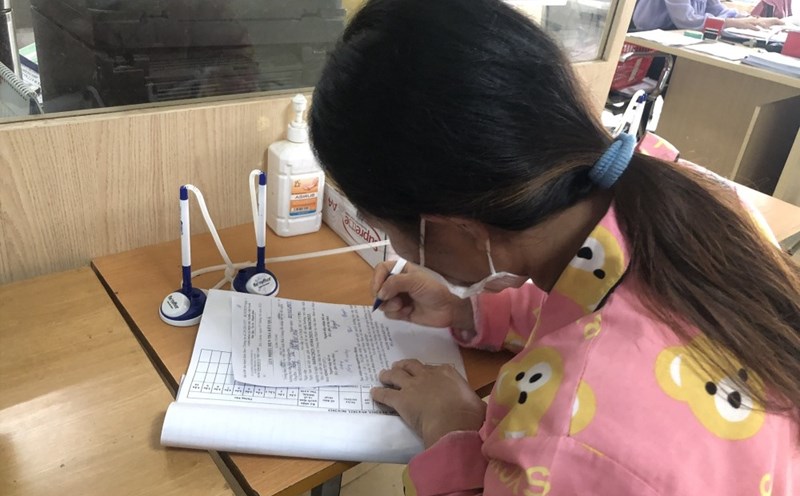Vu Xuan Bac (Minh Tan Ward, Yen Bai City), a student at Yen Bai Province Continuing Education Center, has completed the High School Graduation Exam, Group C, with a score of 22.5. With this score, Bac has decided to study nursing at Yen Bai College.
“There are many reasons for me to study a trade instead of going to university. It is close to home, low cost and especially I know that many foreign companies recruit nursing graduates in Vietnam to countries like Japan, Germany... to work, earn income and have the opportunity to continue studying” - Bac shared.
Student Dang Thi Quynh Trang, majoring in Preschool Education at Yen Bai Pedagogical College, also said: “Instead of going to Hanoi to study to fulfill the dream of “flying high and far” like many other students, I chose to study in the province and participate in an internship at a local preschool. Therefore, when entering the second year, I was quite proficient in child-rearing skills. In addition, during more than 2 years of studying here, I received monthly support from the state of 3.6 million VND, helping to ensure my life and cover my study expenses.”
Along with implementing the State's support policies, Yen Bai province has devoted significant resources to supporting vocational training and education to meet the needs of the domestic and foreign labor markets. The focus is on acting as a bridge for coordination with localities and enterprises to do well in stages such as enrollment, support for training equipment, vocational skills assessment, job introduction and labor export.
Speaking to Lao Dong, Principal of Yen Bai Vocational College Le Anh Tuan said: To build output standards, the school has linked subject content with digital transformation and digital technology throughout the entire curriculum. The teaching staff has been supplemented by hiring leading experts to teach, and by collaborating with vocational schools at home and abroad.
Up to now, Yen Bai province has 14 vocational training institutions. The schools have also actively innovated the content and form of teaching and learning, gradually improving the quality of training; training methods are flexibly organized according to each level and level...
In recent years, the rate of vocational students at colleges and vocational secondary schools in the area has been increasing. Along with investment in facilities, training quality has been gradually improved, training forms and methods have been increasingly diversified in the direction of linking with the needs of learners and the needs of businesses. Many workers after vocational training have been introduced and worked at businesses in and outside the province, some have participated in labor export.
According to Le Van Luong, Deputy Director of the Department of Labor, War Invalids and Social Affairs of Yen Bai province, the province is implementing many solutions to improve the quality of vocational training in the direction of "intellectualizing farmers", meeting the requirements of the Fourth Industrial Revolution.
Thanks to the widespread network of vocational training facilities with improved quality, vocational training for rural workers is carried out smoothly, targeting the right subjects, and achieving high efficiency. Each year, about 2% of agricultural workers shift to non-agricultural work, equivalent to nearly 7,000 workers; creating jobs for 23,000 workers, exporting 300 workers.











